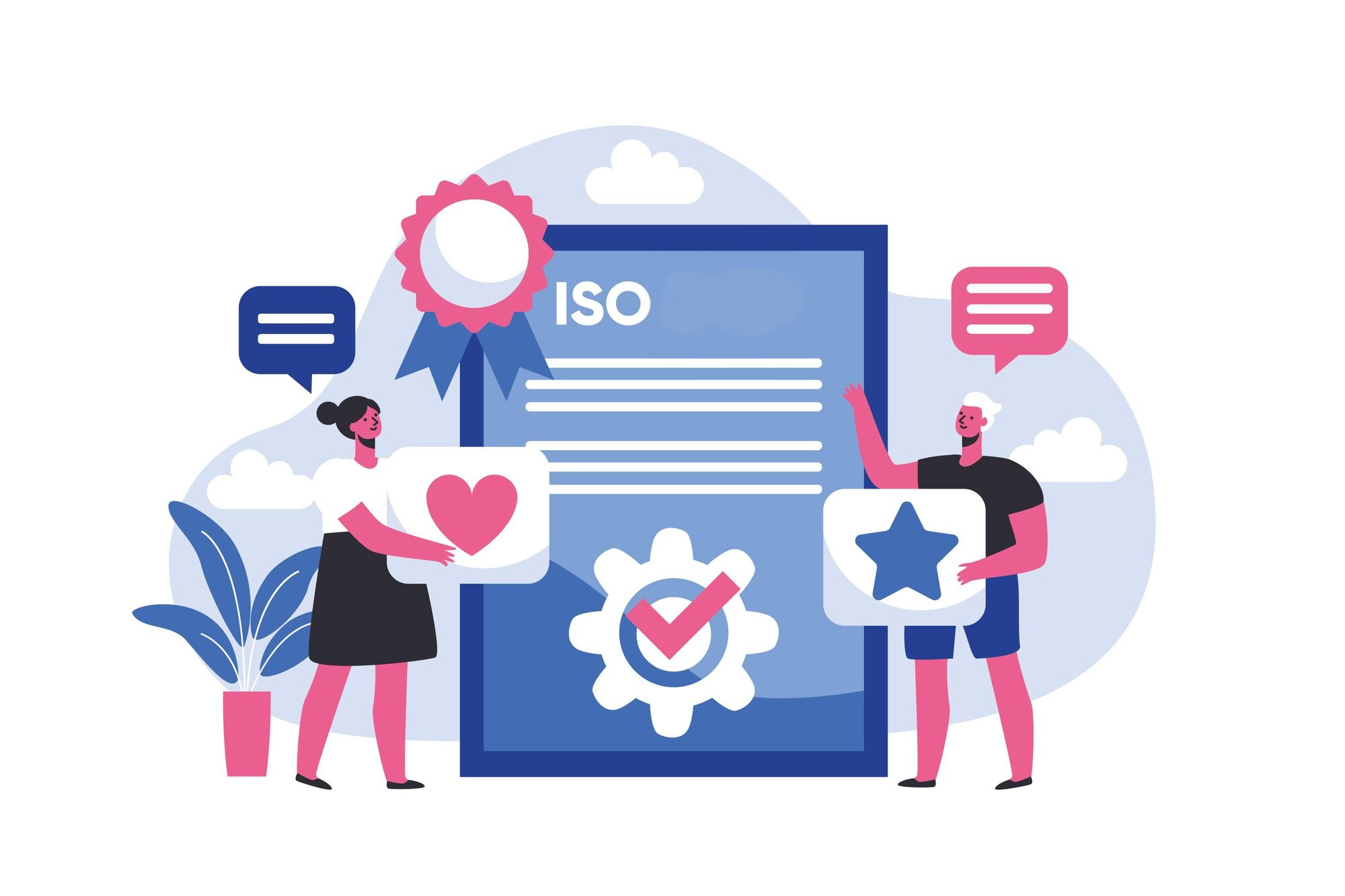In today’s highly competitive market, businesses are constantly seeking ways to differentiate themselves, improve operations, and gain trust with customers. One powerful tool that helps businesses achieve these goals is ISO certification. Whether you’re running a small enterprise or a multinational corporation, ISO certification can play a pivotal role in ensuring consistent growth, improving operational efficiency, and opening new opportunities for business expansion.
This article explores how ISO certification can dramatically boost your business growth, diving deep into the specific ways it enhances credibility, streamlines operations, and leads to sustainable success.
What is ISO Certification?
ISO stands for the International Organization for Standardization, an independent, non-governmental organization that develops and publishes standards to ensure quality, safety, efficiency, and consistency in products, services, and systems. ISO certification demonstrates that a company adheres to these internationally recognized standards.
Common ISO certifications include:
- ISO 9001: Focuses on quality management systems.
- ISO 14001: Focuses on environmental management.
- ISO 27001: Focuses on information security management.
- ISO 45001: Focuses on occupational health and safety.
- ISO 13485: Focuses on quality management for medical devices.
Each of these certifications helps businesses optimize their processes while ensuring regulatory compliance, ultimately contributing to growth.
1. Boosting Customer Trust and Credibility
One of the most significant advantages of obtaining ISO certification is the boost in credibility it provides. Customers and partners are more likely to trust a business that follows established and globally recognized standards.
- Increased Confidence: ISO certification signals to clients that your products or services meet high-quality standards, which instills confidence and fosters long-term relationships.
- Market Differentiation: In crowded marketplaces, ISO certification helps differentiate your business from competitors who may not be certified, giving you an edge in gaining new contracts or clients.
Case in point: Companies that acquire ISO 9001 certification often see a sharp increase in customer retention rates due to the trust that comes with adhering to strict quality management systems.
2. Enhancing Operational Efficiency
ISO certification isn’t just about outward-facing benefits. The internal impact on operational efficiency is equally transformative. Many businesses find that adopting ISO standards results in streamlined processes, cost reduction, and improved performance.
- Consistent Procedures: ISO standards require businesses to establish clear, standardized procedures for operations, reducing variability and increasing efficiency.
- Reduced Errors: Implementing ISO standards minimizes mistakes and defects, leading to fewer customer complaints, product recalls, or regulatory issues.
- Resource Optimization: With better process control, businesses can make the most of their resources, whether it’s human capital, materials, or time.
For example, companies following ISO 14001 for environmental management often reduce waste and energy consumption, which directly leads to cost savings and enhanced sustainability.
3. Expanding Market Opportunities
Having ISO certification unlocks doors to new market opportunities, both domestically and internationally. Many companies and governments require their partners or suppliers to be ISO-certified as part of their procurement process.
- Global Expansion: If you’re aiming to expand into international markets, ISO certification can be a prerequisite for doing business with foreign clients or governments. Many trade agreements and contracts hinge on the presence of ISO-certified systems.
- Eligibility for Tenders: Several governmental and large-scale industrial tenders require ISO certification as part of the eligibility criteria. Without certification, many businesses miss out on lucrative opportunities.
For instance, companies in manufacturing, aerospace, and defense sectors often require ISO 9001 and ISO 27001 certifications to qualify for government contracts.
4. Increasing Profit Margins
Improving efficiency, reducing waste, and ensuring customer satisfaction can all have a direct impact on the bottom line. Companies that are ISO-certified often report better financial performance as a result of cost savings and higher revenue streams.
- Fewer Operational Costs: Streamlined processes and reduced errors contribute to lower operational costs.
- Premium Pricing: Businesses with ISO certifications are seen as offering high-quality products or services, allowing them to command higher prices in the market.
- Improved Cash Flow: With fewer errors, reduced rework, and consistent quality, businesses can reduce costly delays, improving cash flow and profitability.
5. Ensuring Regulatory Compliance
ISO certification helps simplify this by ensuring that your processes meet international legal and regulatory requirements.
- Compliance Confidence: ISO standards are often harmonized with local, national, and international regulations, helping businesses avoid penalties or legal issues.
- Mitigating Risks: By implementing stringent risk management processes, as seen in ISO 27001 (information security) and ISO 45001 (health and safety), businesses can mitigate operational risks and improve their reputation in the industry.
Pro Tip: In industries such as healthcare, medical devices, and aerospace, failing to comply with regulations can result in severe financial and reputational damage. ISO certification reduces this risk by ensuring that your processes are always audit-ready.
6. Empowering Employee Engagement and Retention
ISO certification can positively affect employee morale, making your business a better place to work. Here’s how it benefits internal teams:
- Clear Responsibilities: ISO standards emphasize role clarity and standardized processes, which reduces confusion and stress among employees.
- Continuous Improvement: The core philosophy of ISO standards is continuous improvement, fostering a culture of excellence and accountability in your workforce.
- Training and Development: ISO certification often requires ongoing employee training, which not only enhances their skills but also makes them feel more invested in the company’s success.
A motivated and engaged workforce is a direct contributor to business growth, leading to better productivity and innovation.
7. Facilitating Continuous Improvement
ISO certification fosters a culture of continuous improvement, ensuring that your business never stagnates. This mindset drives innovation, adaptability, and long-term sustainability.
- Ongoing Audits: Regular audits required for ISO certification help identify areas for improvement, keeping your business competitive in an ever-evolving marketplace.
- Process Optimization: Implementing ISO standards isn’t a one-time effort; it encourages businesses to constantly refine their processes, reducing bottlenecks and increasing agility.
Continuous improvement not only benefits your current operations but also positions your business for long-term scalability.
Conclusion: Why ISO Certification is the Key to Sustainable Growth
ISO certification provides a powerful framework for growth by improving operational efficiency, enhancing customer satisfaction, and enabling businesses to enter new markets. With ISO standards, your business gains credibility, reduces risks, and stays compliant with evolving regulations, all while promoting a culture of continuous improvement. This leads to long-term sustainability and an increased competitive edge.
Are you ready to let ISO certification skyrocket your business growth? Start by exploring the certification that aligns best with your industry and take the first steps toward transforming your business into a global leader.
You can also see are Article on Linkedin



